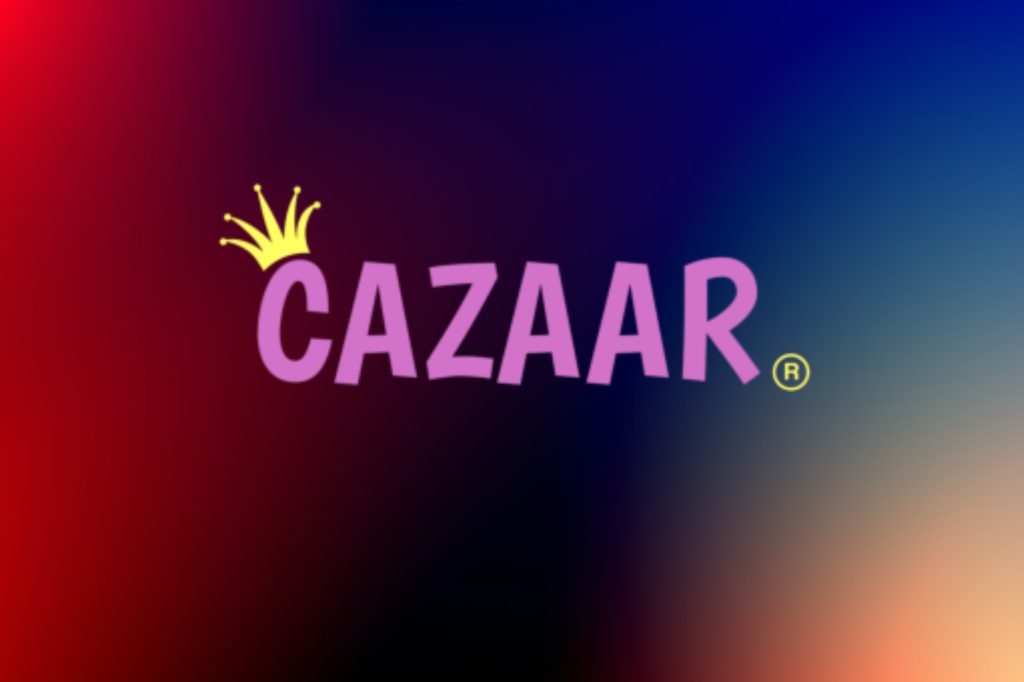
World Book Day is an annual event celebrated in schools around the world to promote reading and literacy among children. As a teacher, it is important to understand the significance of this day and how it can be effectively incorporated into the classroom. In this guide, we will explore various engaging classroom activities for World Book Day that can help foster a love for reading and develop literacy skills in students of all ages.
Understanding the Importance of World Book Day
World Book Day has its roots in UNESCO’s International Children’s Book Day, which was established in 1967. The goal of this day is to celebrate books and reading, and to inspire a lifelong passion for literature in children. By participating in World Book Day activities, teachers can engage students in meaningful reading experiences and help them develop important literacy skills.
The Origins of World Book Day
World Book Day was first observed in 1995 and is now celebrated in over 100 countries worldwide. The date of the celebration varies from country to country, but it is typically held in April. On this day, children are encouraged to dress up as their favorite book character and engage in various reading-related activities.
Let’s delve deeper into the origins of World Book Day. The idea behind this global celebration emerged from the need to emphasize the significance of books and reading in a world that was becoming increasingly digital. As technology advanced, concerns grew about the declining interest in reading among children and young adults. World Book Day was conceived as a way to reignite the love for books and encourage the exploration of different literary works.
Since its inception, World Book Day has gained immense popularity and recognition. It has become a platform for authors, publishers, and educators to come together and promote the joy of reading. The celebration has evolved to include various events such as book fairs, author talks, storytelling sessions, and book donation drives.
The Impact of World Book Day on Literacy
The celebration of World Book Day has been shown to have a positive impact on literacy rates. It promotes reading as a fun and enjoyable activity, encouraging children to explore new books and genres. By exposing students to a wide variety of books and authors, World Book Day helps develop their reading comprehension, critical thinking, and communication skills.
When children dress up as their favorite book characters, they not only showcase their creativity but also develop a deeper connection with the stories they love. This connection can spark their curiosity and motivate them to read more books. Additionally, the various reading-related activities organized on World Book Day provide opportunities for students to engage in discussions, share their thoughts, and express themselves creatively.
Furthermore, World Book Day encourages collaboration between schools, libraries, and communities. It fosters a sense of unity and shared purpose in promoting literacy. The collective effort to celebrate books and reading sends a powerful message to children about the value and importance of literacy in society.
Research has shown that children who participate in World Book Day activities are more likely to develop a lifelong love for reading. They are also more likely to perform better academically, as reading is a fundamental skill that underpins success in various subjects.
In conclusion, World Book Day is a global celebration that aims to instill a love for books and reading in children. Through engaging activities and events, it promotes literacy, fosters creativity, and encourages lifelong learning. By celebrating World Book Day, we can inspire the next generation of readers and ensure that the magic of books continues to captivate hearts and minds for years to come.
Preparing for World Book Day
To make the most of World Book Day, it is important to set clear objectives and effectively communicate the importance of the event to your students. By doing so, you can create an atmosphere of excitement and anticipation that will enhance their overall learning experience.
World Book Day is not just a day to celebrate books, but also an opportunity to ignite a passion for reading in your students. It is a chance to open their minds to new worlds, expand their knowledge, and develop critical thinking skills. By setting objectives and communicating the importance of this event, you can make World Book Day a memorable and transformative experience for your students.
Setting Objectives for World Book Day
Prior to World Book Day, take the time to define your objectives. Do you want to encourage students to explore new genres? Foster a love for reading in reluctant readers? Improve reading comprehension and critical thinking skills? Setting clear objectives will help you select appropriate activities and measure their success.
One objective you may consider is to encourage students to explore different genres of literature. By exposing them to a variety of genres such as fantasy, historical fiction, and science fiction, you can broaden their literary horizons and introduce them to new authors and writing styles. Another objective could be to foster a love for reading in reluctant readers. You can achieve this by providing them with books that align with their interests and offering incentives for completing reading challenges.
Communicating the Importance to Students
Once you have defined your objectives, it is important to effectively communicate the importance of World Book Day to your students. Explain to them the significance of the event, highlighting how reading can broaden their horizons, stimulate their imagination, and enhance their overall academic performance. Encourage them to embrace the opportunity to explore new books and discover new authors.
Furthermore, emphasize the long-term benefits of reading. Share success stories of individuals who have achieved great things through their love for books. Discuss how reading can improve vocabulary, enhance critical thinking skills, and foster empathy and understanding of different cultures and perspectives. By painting a vivid picture of the positive impact reading can have on their lives, you can inspire your students to fully engage in World Book Day activities.
Remember, World Book Day is not just a one-day event, but a catalyst for a lifelong love of reading. By setting clear objectives and effectively communicating the importance of this day, you can create an educational experience that will stay with your students long after the event is over.
Activity Ideas for Different Age Groups
Engaging students of different age groups in World Book Day activities can be challenging, but it is important to tailor the activities to their individual needs and interests. Here are some activity ideas for early years, primary school, and secondary school students:
Activities for Early Years Students
For early years students, it is essential to make World Book Day activities fun and interactive. Storytime sessions with interactive storytelling can capture their imagination and foster a love for books. Teachers can use props, puppets, and different voices to bring the stories to life. Dressing up as favorite book characters can also be a thrilling experience for young children. They can explore their creativity by making simple craft projects based on their favorite books, such as creating paper plate masks or finger puppets. Additionally, sensory activities related to books, such as sensory bins filled with different textures and objects related to a specific story, can provide a hands-on learning experience.
Activities for Primary School Students
Primary school students are at an age where they can actively engage in discussions and express their opinions. Organizing book swaps and discussions can encourage them to explore different genres and authors. This activity not only promotes reading but also teaches them about sharing and exchanging ideas. Teachers can also encourage students to write book reviews, helping them develop critical thinking skills and articulate their thoughts. Hosting author visits or video conferences can give students the opportunity to interact with their favorite authors and ask questions about their writing process. Creating book-inspired art projects, such as designing book covers or illustrating scenes from their favorite stories, can unleash their creativity and artistic abilities.
Activities for Secondary School Students
Secondary school students have a deeper understanding of literature and can engage in more complex activities. Holding book club discussions on selected novels can encourage them to analyze themes, characters, and literary techniques. It also provides a platform for students to share their interpretations and insights. Organizing book-themed debates or quizzes can challenge their critical thinking skills and enhance their knowledge of different literary works. Encouraging students to write and perform book-inspired skits can foster their creativity and confidence in public speaking. Inviting local authors for guest lectures can give students a firsthand account of the writing process and inspire them to pursue their own literary aspirations.
By tailoring World Book Day activities to the different age groups, educators can create an enriching and enjoyable experience that promotes a lifelong love for reading and learning.
Incorporating Technology into World Book Day Activities
Technology can play a vital role in engaging students and enhancing their World Book Day experience. Here are some ways to incorporate technology into your activities:
Digital Tools for Interactive Reading
Utilize interactive eBooks and online story platforms to engage students in reading. These digital tools offer features such as read-along narration, interactive animations, and comprehension questions, making the reading experience more engaging and interactive.
Online Platforms for Book Discussions
Use online platforms such as discussion forums or social media groups to facilitate book discussions among students. This allows them to share their thoughts, ask questions, and connect with other readers, fostering a sense of community and encouraging critical thinking.
Evaluating the Success of World Book Day Activities
After the celebrations, it is important to assess the impact of your World Book Day activities. By evaluating the success of these activities, you can identify areas for improvement and make adjustments for future events.
Assessing Student Engagement
Observe and reflect on student participation during the activities. Were they actively engaged? Did they demonstrate enthusiasm for reading? Collect feedback from students through surveys or class discussions to gain valuable insights into their experiences and preferences.
Measuring the Impact on Reading Habits
Monitor the reading habits of your students following the World Book Day activities. Did their interest in reading increase? Did they explore new books and authors? Look for evidence of improved reading comprehension and critical thinking skills as well. This data will help you gauge the effectiveness of your efforts.
In conclusion, World Book Day provides a wonderful opportunity for teachers to engage students in activities that promote a love for reading and enhance literacy skills. By understanding the importance of this day, setting clear objectives, and tailoring activities to the needs of different age groups, teachers can create meaningful and engaging learning experiences for their students. By incorporating technology and evaluating the impact of these activities, teachers can ensure the success of their World Book Day celebrations year after year.



